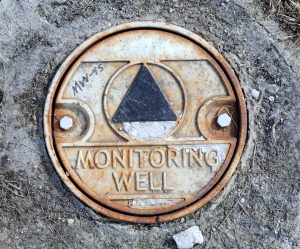 The United States declared a national emergency in response to COVID-19 on March 13, 2020, and states quickly followed with stay-at-home orders that impacted businesses and institutions nationwide. It has now been nine full months since the pandemic emerged in the United States and businesses began to shut down in the face of contamination and civil authority orders effecting restrictions on access to and use of their premises.
The United States declared a national emergency in response to COVID-19 on March 13, 2020, and states quickly followed with stay-at-home orders that impacted businesses and institutions nationwide. It has now been nine full months since the pandemic emerged in the United States and businesses began to shut down in the face of contamination and civil authority orders effecting restrictions on access to and use of their premises.
Articles Posted in Property Damage
Out of the COVID Frying Pan: Valuing Business Interruption Claims from Wildfires in a Pandemic
 One word that aptly describes the devastation that is 2020 is “relentless.” The COVID-19 pandemic has caused both personal and economic suffering throughout the world for over six months. Against the backdrop of the already devastating effects of COVID-19, several regions in the United States have recently experienced powerful storms and historically large wildfires. The wildfires in the western United States and Canada have been especially catastrophic this year—burning millions of acres, forcing evacuations, damaging air quality, and creating blankets of smoke extending over much of the country. The fires have destroyed homes and businesses and will lead to hundreds or thousands of insurance claims under homeowners, commercial property, and business interruption policies.
One word that aptly describes the devastation that is 2020 is “relentless.” The COVID-19 pandemic has caused both personal and economic suffering throughout the world for over six months. Against the backdrop of the already devastating effects of COVID-19, several regions in the United States have recently experienced powerful storms and historically large wildfires. The wildfires in the western United States and Canada have been especially catastrophic this year—burning millions of acres, forcing evacuations, damaging air quality, and creating blankets of smoke extending over much of the country. The fires have destroyed homes and businesses and will lead to hundreds or thousands of insurance claims under homeowners, commercial property, and business interruption policies.
What happens under First Party Property/Business Interruption insurance when more than one arguably covered cause of loss impacts a business at the same time?
Insurance Coverage for COVID-19 “Back to Office” Expenses
 As businesses around the world continue to assess when and how to reopen their offices, the marketplace has become saturated with innovative “back to office” products and services. Whether a business chooses to invest in the latest body temperature scanner (such as Kogniz, a thermal security platform that uses AI to track fevers from a distance), room occupancy monitor (such as Density, which measures the depth and body patterns of people walking through doors to ensure social distancing is enforced), or UV light sanitizing stations and self-sanitizing keyboards (such as the Cubby and Defender), the decision may be influenced, in part, by the availability of insurance coverage for the additional investment. At a more basic level, businesses may provide workers with personal protective equipment (PPE), such as masks, gloves and hand sanitizer, or make changes to their workspaces such as social distancing signage.
As businesses around the world continue to assess when and how to reopen their offices, the marketplace has become saturated with innovative “back to office” products and services. Whether a business chooses to invest in the latest body temperature scanner (such as Kogniz, a thermal security platform that uses AI to track fevers from a distance), room occupancy monitor (such as Density, which measures the depth and body patterns of people walking through doors to ensure social distancing is enforced), or UV light sanitizing stations and self-sanitizing keyboards (such as the Cubby and Defender), the decision may be influenced, in part, by the availability of insurance coverage for the additional investment. At a more basic level, businesses may provide workers with personal protective equipment (PPE), such as masks, gloves and hand sanitizer, or make changes to their workspaces such as social distancing signage.
Disgorgement/Restitution Defense Continues to Lose Steam in Wake of Supreme Court Decision in Liu v. SEC
 Late in June, the U.S. Supreme Court issued a decision in Liu v. SEC, a closely watched case in which the Court in an 8-1 opinion curtailed the authority of the Securities and Exchange Commission (SEC) to seek disgorgement of profits from private parties in judicial enforcement proceedings. The Court articulated restrictions on the SEC’s disgorgement power, including (1) limiting disgorgement amounts to the net profits from wrongdoing, (2) limiting the SEC’s ability to seek disgorgement of profits on a joint and several basis, and (3) directing the SEC to return disgorged monies to aggrieved investors rather than depositing them in the U.S. Treasury. Although it does not address insurance issues directly, the Court’s analysis of the disgorgement remedy is bound to revive discussion of the issue of insurability of losses suffered as a result of settlements or judgments characterized as disgorgement.
Late in June, the U.S. Supreme Court issued a decision in Liu v. SEC, a closely watched case in which the Court in an 8-1 opinion curtailed the authority of the Securities and Exchange Commission (SEC) to seek disgorgement of profits from private parties in judicial enforcement proceedings. The Court articulated restrictions on the SEC’s disgorgement power, including (1) limiting disgorgement amounts to the net profits from wrongdoing, (2) limiting the SEC’s ability to seek disgorgement of profits on a joint and several basis, and (3) directing the SEC to return disgorged monies to aggrieved investors rather than depositing them in the U.S. Treasury. Although it does not address insurance issues directly, the Court’s analysis of the disgorgement remedy is bound to revive discussion of the issue of insurability of losses suffered as a result of settlements or judgments characterized as disgorgement.
Appraisal May Be a Viable Option for Policyholders When Damages Calculations Are Contested
 Even if an insurance company attempts to deny its coverage obligations, there are still processes that a policyholder can explore, short of litigation, that could resolve a coverage dispute. Appraisal is an alternative dispute resolution process designed to efficiently resolve measurement disputes between policyholders and their insurers. Appraisal can streamline a coverage lawsuit and narrow the disputed issues—it may even limit the need for expert reports and depositions. There is a strong public policy favoring appraisals throughout the country, not only because they may provide a less expensive alternative to litigation, but also because appraisal rulings are enforceable and strictly applied in court. Some states even require that form standard insurance policies include an appraisal clause requiring either party to, on demand, submit a dispute over the amount of a loss to an appraisal panel. (See Virginia Code § 38.2-2105; Cal. Ins. Code § 2071; McKinney’s Ins. Law§ 3404; N.J.S.A. § 17:36-5.20.) That panel typically consists of two appraisers, who select an umpire.
Even if an insurance company attempts to deny its coverage obligations, there are still processes that a policyholder can explore, short of litigation, that could resolve a coverage dispute. Appraisal is an alternative dispute resolution process designed to efficiently resolve measurement disputes between policyholders and their insurers. Appraisal can streamline a coverage lawsuit and narrow the disputed issues—it may even limit the need for expert reports and depositions. There is a strong public policy favoring appraisals throughout the country, not only because they may provide a less expensive alternative to litigation, but also because appraisal rulings are enforceable and strictly applied in court. Some states even require that form standard insurance policies include an appraisal clause requiring either party to, on demand, submit a dispute over the amount of a loss to an appraisal panel. (See Virginia Code § 38.2-2105; Cal. Ins. Code § 2071; McKinney’s Ins. Law§ 3404; N.J.S.A. § 17:36-5.20.) That panel typically consists of two appraisers, who select an umpire.
Insurance Coverage Claims for Theft, Vandalism and Curfews

Many U.S. businesses face income losses from theft, vandalism and resulting curfew orders, which have affected numerous cities in recent days.
Commercial property insurance policies may provide coverage for these losses, which are and should be treated as a separate claim from pandemic-related losses. Property policies cover physical damage to property and, usually, also provide coverage for business interruption losses if certain conditions are met. Whatever position insurers may take on contamination from COVID-19, they cannot plausibly contest that shattered windows, broken fixtures and stolen merchandise are physical loss or damage. And, while insurance policies vary, typically there is business interruption coverage for “Civil Authority” orders, such as curfews requiring businesses to close. Nearly always, such coverage requires the existence of property damage within some limited geographic radius surrounding the policyholder’s location. This often ranges from one to 10 miles. So if your business is closed by a curfew order and, for example, a building down the block had its windows shattered by thrown bricks, or worse, there is every reason to submit a claim. Bear in mind that, depending on the wording of your policy, the trigger for Civil Authority coverage may not be limited to damage to buildings: it may apply to property within buildings and property in the street, potentially including vandalized vehicles. Think outside the box (store).
A Primer on Bringing First-Party Insurance Claims
 The profound impact of COVID-19 leading businesses to file first-party insurance claims is now well known. Further, insurance companies are systematically pushing back on potential coverage for COVID-19, with some issuing blanket coverage denials without investigation. In other words, this is not an ordinary claims environment. Against this backdrop, many policyholders are facing what may be their first significant insurance claim. This primer will familiarize such policyholders with the initial steps of the first-party insurance claims process. Whether a potential claim is related to COVID-19 or not, understanding the claims process is the best first step towards avoiding pitfalls and maximizing chances of recovery.
The profound impact of COVID-19 leading businesses to file first-party insurance claims is now well known. Further, insurance companies are systematically pushing back on potential coverage for COVID-19, with some issuing blanket coverage denials without investigation. In other words, this is not an ordinary claims environment. Against this backdrop, many policyholders are facing what may be their first significant insurance claim. This primer will familiarize such policyholders with the initial steps of the first-party insurance claims process. Whether a potential claim is related to COVID-19 or not, understanding the claims process is the best first step towards avoiding pitfalls and maximizing chances of recovery.
Cyber Coverage by any Other Name Can Smell as Sweet: Maryland Court Rules Traditional Property Policy Covers Loss of Data and Impaired Computer Equipment After Ransomware Attack.
 Cyberattacks are an increasingly frequent and costly risk faced by almost every business today. While the availability and scope of cyber-specific insurance has developed exponentially over the past few years, it is important to remember that more traditional policies (such as general liability and first-party property insurance) can still be a source for coverage in connection with cyber incidents, as a recent court decision demonstrates.
Cyberattacks are an increasingly frequent and costly risk faced by almost every business today. While the availability and scope of cyber-specific insurance has developed exponentially over the past few years, it is important to remember that more traditional policies (such as general liability and first-party property insurance) can still be a source for coverage in connection with cyber incidents, as a recent court decision demonstrates.
Getting Ahead of the Coronavirus Epidemic: What It Means for Insuring Your Business
 There has been a drumbeat of news reports about Wuhan, China, a city more populous than any in the United States, which is in effective lock-down because of the coronavirus. Foreign nationals are being evacuated, travel has been restricted, and business is at a standstill. At a time like this, preserving public health is the highest priority. But businesses, both local and global, are also affected by shut-down orders, disruptions to their supply chains, mass sick days, and loss of business. Many, especially providers of hospitality or health care, may face elevated liability risks for exposing others to a contagion. It is important to remember that insurance may be available to meet these risks.
There has been a drumbeat of news reports about Wuhan, China, a city more populous than any in the United States, which is in effective lock-down because of the coronavirus. Foreign nationals are being evacuated, travel has been restricted, and business is at a standstill. At a time like this, preserving public health is the highest priority. But businesses, both local and global, are also affected by shut-down orders, disruptions to their supply chains, mass sick days, and loss of business. Many, especially providers of hospitality or health care, may face elevated liability risks for exposing others to a contagion. It is important to remember that insurance may be available to meet these risks.
A Recent “Event” in Wisconsin: Appellate Court Rules That a Commonly Used London Market “Occurrence” Definition Is Ambiguous
 In recent years, Wisconsin generally has been a pro-policyholder jurisdiction when it comes to long-tail environmental coverage cases. That trend continues with a decision by a Wisconsin appellate court in a case involving coverage for environmental cleanup costs at a former manufactured gas plant site. In Superior Water, Light & Power Co. v. Certain Underwriters at Lloyd’s, London Subscribing to Policy Nos. K22700, CX2900, and CX2901, the court reversed a lower court and held that there may be coverage under historic policies if there was damage to groundwater during the policy period, notwithstanding that site operations had ceased years earlier. This is an important decision, as the same historic London Market “occurrence” definition was used in many policies issued to other policyholders by London Market Insurers during the same time frame. (A description of some of the unique aspects of the London insurance market can be found here.)
In recent years, Wisconsin generally has been a pro-policyholder jurisdiction when it comes to long-tail environmental coverage cases. That trend continues with a decision by a Wisconsin appellate court in a case involving coverage for environmental cleanup costs at a former manufactured gas plant site. In Superior Water, Light & Power Co. v. Certain Underwriters at Lloyd’s, London Subscribing to Policy Nos. K22700, CX2900, and CX2901, the court reversed a lower court and held that there may be coverage under historic policies if there was damage to groundwater during the policy period, notwithstanding that site operations had ceased years earlier. This is an important decision, as the same historic London Market “occurrence” definition was used in many policies issued to other policyholders by London Market Insurers during the same time frame. (A description of some of the unique aspects of the London insurance market can be found here.)
 Policyholder Pulse
Policyholder Pulse


